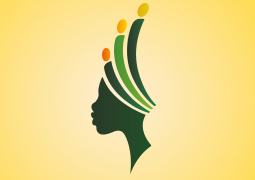
Gender mainstreaming is a topical matter of our time that has taken a centre stage locally and internationally because there is a consensus that the lack of full emancipation of women from gender discrimination has reversed the hard-won gains of our freedom and democracy.
The Commission for Gender Equality (CGE) presented the Portfolio Committee on Women in the Presidency its Mining and Gender Mainstreaming Report on the South African mining sector. This report is part of the CGE’s gender barometer reports that are conducted annually to assess the impact of gender equality or lack thereof in both private and public sectors.
This tool, which was developed in 2008, was utilised in this male-dominated sector based on the view that it was faced with many gender equality challenges. “Women still face practical challenges and safety issues such as verbal and sexual harassment and physical abuse in this sector which go unreported. In some instances, women are pressurised to offer sexual favours for promotion.”
The commission utilised a raft of legislative frameworks such as the Promotion of Equality and Prevention of Unfair Discrimination Act of 2000, Labour Relations Act, Skills development Act 97 0f 1998, Occupational Health and safety Act as well as National Gender Policy Framework to undertake this assessment.
“But despite all the various legislative and policy promoting gender mainstreaming and transformation, progress has been extremely slow in the mining sector, said one of the commissioners of Commission, Ms Lulama Nare.
There are also international instruments that this assessment utilised that seek to entrench gender equality in the work place. “These include the Convention on the Elimination of All Forms of Discrimination Against Women; the Beijing Platform of Action, which requires all state parties to make available the necessary financial and budgetary resources for gender mainstreaming; as well as the Commission on the Status of Women to advocate for equal representation in decision-making,” she said.
Out of these instruments the CGE has developed a systematic methodology of a rating scales, which is numerical and the substantive assessment tool, said the Head of Research at CGE, Dr Thabo Rapoo. “The latter comprised site visits and observation, interviews with senior officials and the perusal of relevant documentation were acquired for examination and analysis.”
This involved a five-level gender representation rating scales, he said. “This score was used to rate the performance of entities with regard to progress made in the numerical representation of women at senior management level.”
In addition to that, three thematic topics were used to assess their organisational culture in relation to gender parity, he said. “These themes were utilised to assess the gender representation and participation at internal decision-making level, the mainstreaming of gender in organisational culture and systems as well as measures to create an enabling environment for gender mainstreaming.”
Two mining companies were subjected to this barometer: African Rainbow Minerals and Anglo American, he said. And although their level of compliance differ, generally they did not perform satisfactorily. “But what was pleasing is that they have since made amends to set up necessary structures to deal with the lack women in their senior management level, in technical positions and to implement policies that will promote gender mainstreaming.”
A member of the Committee, Ms Pat Chueu, said there was no way that women can be subjected to heavy duties such as working underground in the mines, digging. That would be the vulgarisation of gender equality. “We cannot allow that to happen because what that means is that those women would not be able to bear children in future.”
What is the Department of Labour’s responsibility in this regard? asked Ms Grace Tseke. “I am asking this because we have good pieces of legislation but implementation is lacking. We can review and revise them, but if we cannot implement them they won’t have the desired effect.”
The Commission must be our strategic partner in promoting this agenda, said Ms Chueu. “You are the eyes and ears of the Committee. You must help us find solutions to these problems.”
The main challenge in this regard is the lack of gender agenda in the work of other parliamentary Committees. And that could help to hold other departments accountable, said the Chairperson of the Commission.
Ms Phumzile Bhengu, another member of the Committee, decried the lack of urgency in mainstreaming disabled women. “Cost of employment is always cited as the excuse for their employment. This cannot be accepted. Even Parliament is not meeting the stipulated 2% employment equity of disabled women required by law.”
One of the commissioners of the Commission, Mr Wallace Mgoqi, emphasised the need for sanctions or litigations to companies or entities that do not abide by the gender equality legislation or policy framework thereof in future.
The Chairperson of the Committee, Ms Thandi Memela, said the gender equality debate is a sensitive matter. And needed to be treated as such. “We cannot afford not to be careful when we deal with this matter. It is a sensitive matter. We also need to dig deeper to address some of the challenges that this issue brings to the fore. We need to pay a special attention to those challenges and address them with the urgency they deserve.”
By Abel Mputing
7 November 2017

